Attending this year’s SALTEX show at the NEC, as always, was an enlightening experience. Our very own turf grass industry is a myriad of skills and activities that come together to help maintain our wonderful ever changing and challenging landscape facilities. Whether it be managing football stadiums, golf courses, school grounds or large estates, the skill sets and responsibilities for the manager in charge is often unmeasurable.
In recent years however, we are now seeing some worrying outcomes from these demanding roles. I have been hearing on the grapevine, particularly in the golfing world, that we have been seeing a large number of head greenkeepers / course managers leaving the industry.
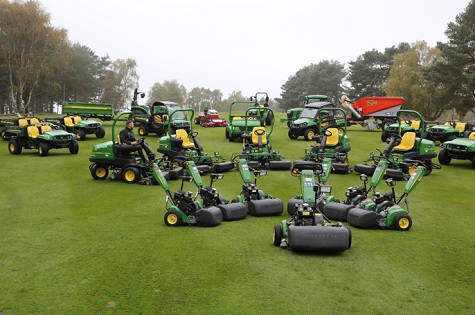
There is no doubt that the pressures of running a modern golf course or sports facility can come at a cost.
Expectations from end users are consistently becoming greater and can only be met if the facility has the appropriate resources, staff, machinery and support from management. Far too often I see too many facilities understaffed and underfunded.
This has been backed up by a couple of articles I have read on the STRI website.
One article, The battle with mental health in greenkeeping, argues that opening up about mental health issues is still rare in the workplace, even more so in the stout-hearted world of turf. In this piece, STRI deputy grounds manager, Tim Randall, talks honestly about his personal experiences. Much of what Tim explains, he says is becoming the norm and leading to an unhealthy workplace.

In the article, which is well worth reading in full, Tim effectively sums up some of the main reasons that caused his stress illness -
"Greenkeepers are under pressure because of reduced budgets and increases in the costs of materials and machinery. Many golf clubs, if they lose a member of staff, don’t replace them, and that heavy workload falls to the remaining team. It is also very difficult to find replacement staff as there are fewer people entering the profession. It’s seen as a career for younger people because of long hours and physically demanding work. There are also pressures from members to play in all weathers, who want to get on the course 365 days of the year. Whereas once courses were closed during winter, now there are golfing competitions and winter leagues. It’s incredibly difficult to keep a course open, and in good condition, when you are fighting the weather."
This is, I believe, coupled with the fact that for many greenkeepers they are often answerable to a greens committee or managers who have no real knowledge or understanding of the complexities of the job and role of the greenkeeper, plus the issues they face on a daily basis. . This is has also been backed up by another interesting article written by Emma Beggs of the STRI
In this article Emma is keen to point out that from her work across the UK, she has first-hand experience of how stress issues can cripple greenkeeping staff, grounds people and the facilities they work on.
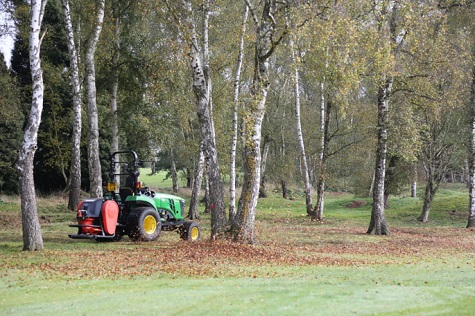
Emma states, “There is a difference between stress and pressure. We all experience pressure on a daily basis and need it to motivate and enable us to perform at our very best. It’s when we experience too much pressure without the opportunity to recover that we start to experience stress.
"Whilst out talking to turf industry professionals, it became clear that increasing numbers of turf managers and their staff are being put under unrelenting pressure. Not coping with this pressure can quite quickly become a problem, particularly if staff feel isolated and unable to communicate their concerns.
"When pressure of work is impacting on quality of time away from work, time that should be spent happily with friends and families, then something needs to change."
If you have time today, it's well worth reading the rest of Emma’s piece here.

Both of these compelling accounts ring true, evidenced by many experienced greenkeepers leaving our industry. These are hard acts to follow, coupled with the fact we are also seeing a decline of young willing people wanting to enter and remain in the industry, due to the expectations, long hours and low pay rewards being offered compared to other industries.
Another course manger I met at SALTEX was also worried about the future of the industry, telling me that the hard part is getting the management of the clubs (and I don’t mean course managers) to read and understand what pressures people are being put under. Even the courses who have good budgets, their expectation levels are through the roof. Over the last 20 years golf has gone from occasional winter play, ‘happy to just get some fresh air now and again’, to ‘if we don’t get 365 day golf, we are leaving and we want buggies and trolleys, oh and for that matter, leave the tees on the summer tees, we don’t want to play off mats and don’t you dare aerate those greens but we want them perfect for next season as well’!
All this with less resources and weather patterns that are much more extreme and unpredictable. Yes, subs have increased, but probably no where near enough to keep pace with material or machinery inflation. Golf equipment however, has soared. For example, drivers quadrupling in price and now sets don’t even come with a SW PG or 3 or 4 iron.
There is only so much money available in peoples’ pockets and through good marketing with companies making people think they need to change their driver every 5 minutes to hit it 5 yards further (usually into the rough), cash is going to these big sports manufacturers, undoubtedly meaning people have less money to spend on other things and as such has helped to drive the cost of membership down and the green fee down.
The loss of any experienced sports turf and amenity professional is a worrying trend. Some independent research carried out by the Institute of Groundsmanship (IOG) has, they say, identified concerning facts that will impact on the opportunities to play sport on well-maintained natural turf pitches / facilities.
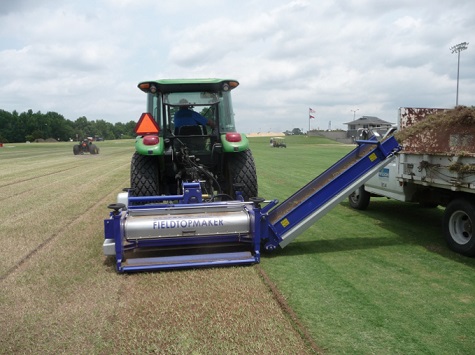
Research findings highlight the fact that the number of young people embarking on a career in groundsmanship is in decline - and with over 40% of the workforce over the age 50, this say the IOG, is a worrying trend. The report also shows that investment is urgently needed in adequate training and education to ensure groundscare professionals and volunteers are able to maintain safe, quality standard pitches to allow for increased demand for sports participation now and in the future.
I personally firmly believe that the workplace must become an environment that suits all, who are working together to meet the same objectives. Sharing responsibilities and having respect for one another is the key to success. No one person can achieve and deliver the expectations of typical modern day 18 hole golf complex. Communication and respect is the key to success. Without the skill sets of any established greenkeeping team, no golf course can remain fit for purpose and sustainable and deliver the expectations of its members.
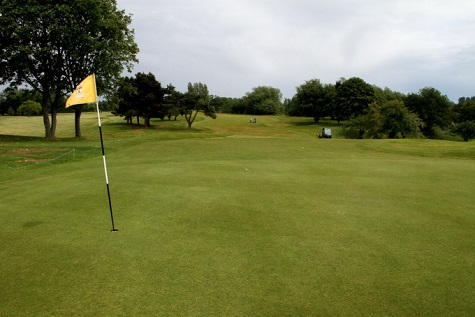
It takes many years to build up and establish a credible and hardworking dedicated greenkeeping team. Do not lose it on the mere fact of personality clashes and inabilities to communicate to one another.
The British and International Golf Greenkeepers' Association is also worried about this trend and for many years have worked tirelessly to safeguard the welfare of their members with various forms of support.
BIGGA has worked alongside the governing bodies for golf in the UK, including England Golf, Scottish Golf and Wales Golf to issue a new governance guide for clubs in the ongoing drive to modernise and grow the game.
Key stakeholders across the sport recognise the value of improving the organisation and structures of clubs in order to maximise their potential for profitability and growth.
BIGGA CEO Jim Croxton said: "Good governance is at the core of any successful business as it fosters a positive culture of clarity and accountability at all levels. The management structures at many golf clubs have evolved organically over the history of the sport and so formal structures are often not in place, or adhered to. All-too-often, this leads to a disconnect between the staff and those in leadership roles, which can lead to conflict within the workplace.
"We've worked alongside the game's governing bodies and the other organisations involved with golf club staff to create this new edition of the golf goverance guide, which has now adopted information relating to the correct treatment of staff. I hope that this guide is just the first step towards a better, more prosperous industry for all."
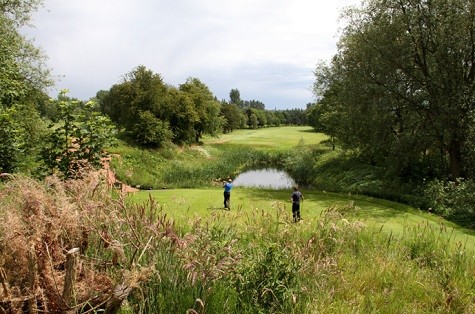
Yes, the art of greenkeeping has become very complex in recent years. The myriad of skills and knowledge required to manage a golf course is often unmeasurable and often not often rewarded in terms of support and remuneration.
Golf courses need to look at themselves carefully and ensure they respect and understand the role of the greenkeeper and course manager and take advantage of their collective skills and knowledge and treat them accordingly for the benefit and future of these priceless golfing assets.